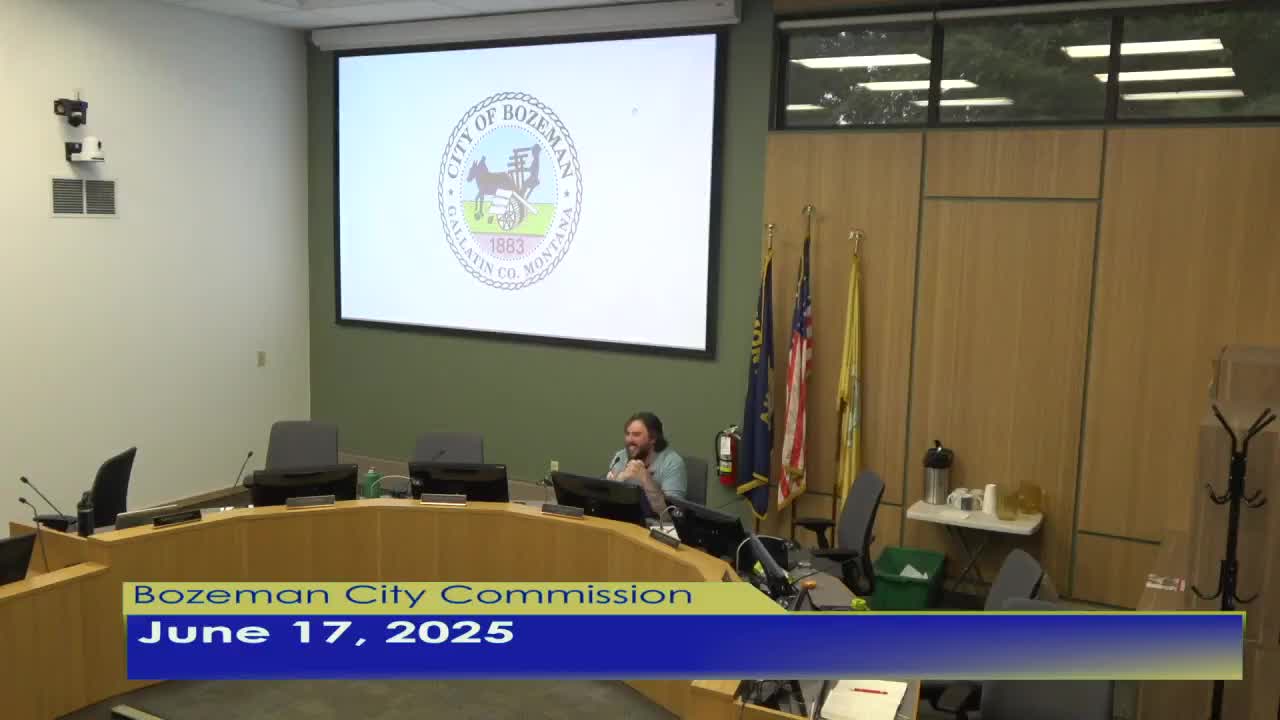Article not found
This article is no longer available. But don't worry—we've gathered other articles that discuss the same topic.
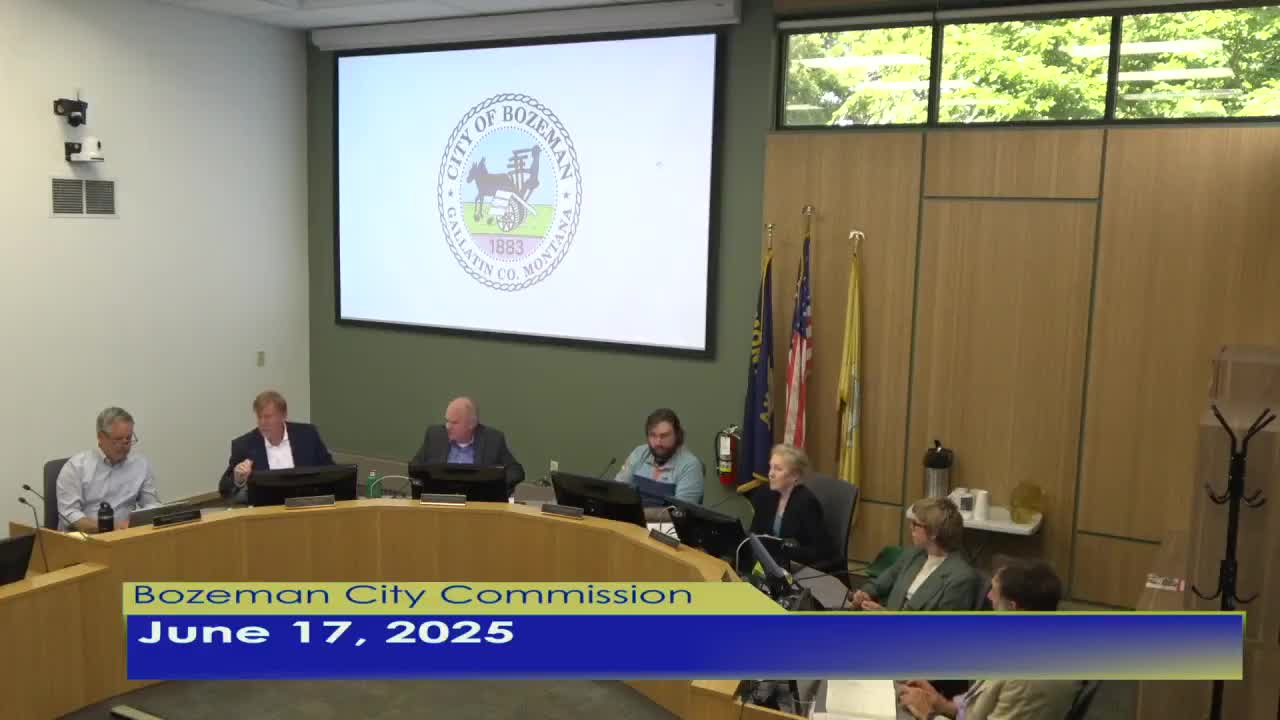
Bozeman Commission provisionally adopts zone change tied to Gallatin County land swap
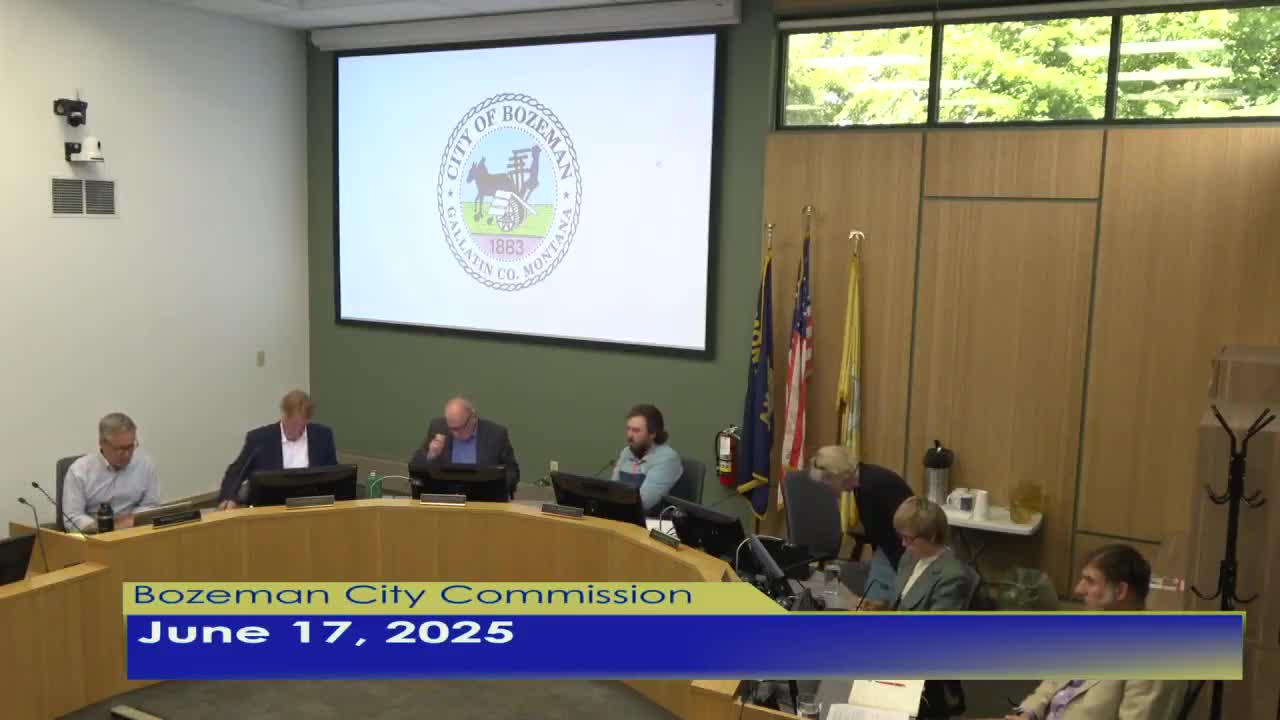
Bozeman mayor and deputy mayor call for cooler political discourse after national political violence
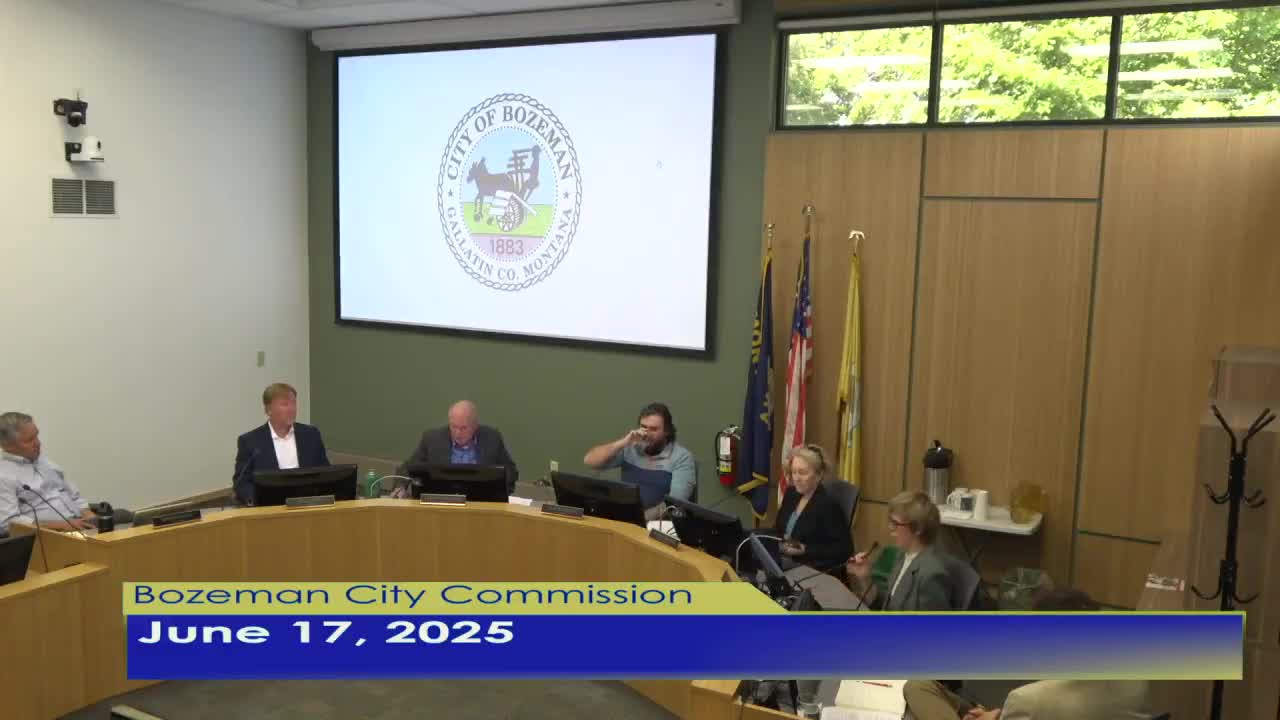
Multiple residents urge Bozeman Commission to adopt Progress Pride flag as official city symbol
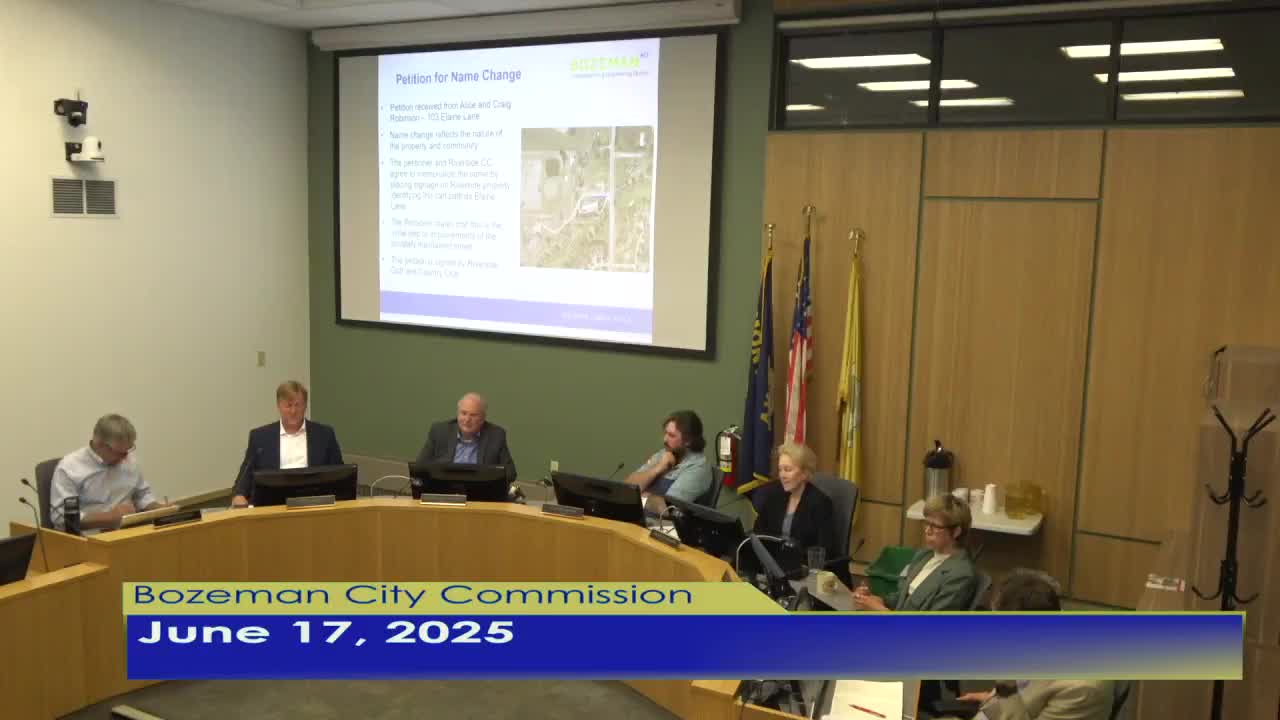
Commission renames Elaine Lane to Fly Fisher Run; change to be recorded with 911/ county systems
